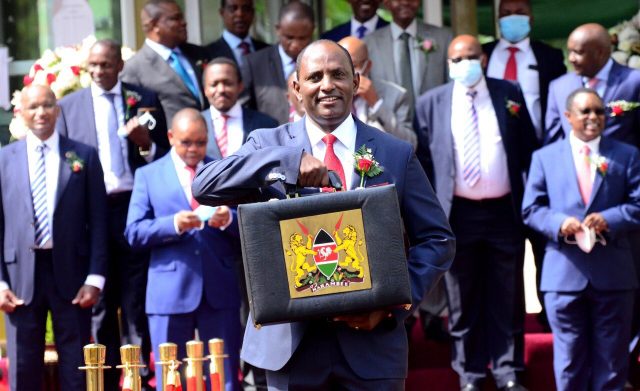
When the Finance CS Ukur Yatani first submitted the 2020 Budget Policy Statement to Parliament in February 2020, the financial projections had assumed a normal operating environment. The economy was projected to grow by 6.1 per cent in 2020 from 5.4 per cent in 2019. However, the global outbreak and the rapid spread of the Covid-19 Pandemic has affected the global economy at large.
In his maiden 2020/21 Budget presentation, CS Ukur highlighted that COVID-19 pandemic and the swift containment measures, including the closure of the airspace and borders, curfews and cessation of movements in some counties among others, have not only disrupted ways of lives and livelihoods but to a greater extent business.
Apart from the pandemic, our economy has also been affected by the massive invasion of swarms of desert locusts that damaged crops and floods that led to the loss of lives and livelihood, displacement of people and destruction of infrastructure. Aware of the magnitude of the multiple challenges, particularly the Covid-19 pandemic, CS Ukur noted that the government moved swiftly to intervene and implement a range of measures to mitigate the adverse effects. These measures have provided the much-needed relief to the economy through the injection of cash and provision of additional disposable incomes to the people and businesses.
To support the economy in future the CS mentioned that the government is formulating a Post-COVID-19 Economic Recovery Strategy to mitigate the adverse impacts on the economy. This strategy will reposition the economy on a steady and sustainable growth trajectory and is set to focus on the following.
- A sound macroeconomic policy framework to support a higher sustainable economic growth that will address the challenges of poverty, unemployment and income inequality
- Adequate local and foreign resource mobilization to ensure sustainable funding for our development programmes.
- Enhancing the role of the private sector in the economy, including financing infrastructure projects from diverse sources such as Public-Private Partnership and lease financing.
- Supporting Micro, Small and Medium Enterprises by facilitating access to adequate finances through the Credit Guarantee Scheme
- Full and timely implementation of the Economic Stimulus Programme which will create jobs and stimulate businesses
- investment in ICT and digital infrastructure to support the use of digital platforms to facilitate e-commerce and efficient delivery of public services
- Promotion of local production processes and domestic supply value chains
- Enhancement of disaster risks management systems.
- Improvement of social-protection through targeted policy interventions and programmes
- Strengthening Monitoring and Evaluation System for quality outcomes of the projects.


